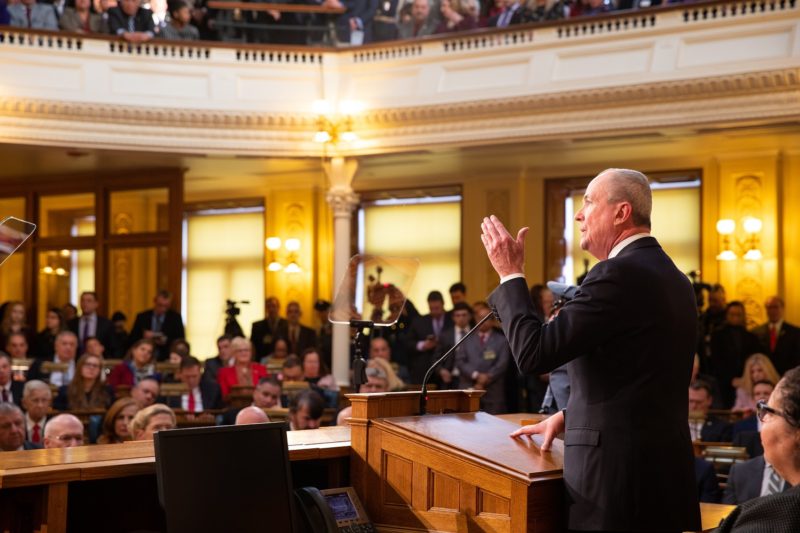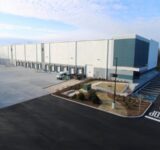Gov. Phil Murphy is set to deliver his budget message to the Legislature on Tuesday, March 5. — Photo by Edwin Torres/Governor’s Office
By Michael G. McGuinness

This February, we usher in the Year of the Pig, the 12th and last month in the Chinese zodiac calendar. Traditionally, a Pig Year is associated with good fortune through favorable financial prospects and return on investments. But 2020 is the Year of the Rat, which starts the cycle all over again. A Rat Year is traditionally not a good one for business. Although I am not a believer in such things, there may be a lesson to learn here: to recognize the fragile nature of our state economy and the need to be nimble and not squander our precious resources and opportunities.
Gov. Phil Murphy will give his budget message to the Legislature on Tuesday, March 5. As the voice of the commercial real estate development industry in New Jersey, NAIOP’s attention will be focused on the messaging that emanates from Trenton. Given the headlines over the last several months, we are rightly concerned about the state’s fiscal health and its ability to withstand a recession, which is all but certain by 2020. Since the Great Recession in 2008, New Jersey’s economic growth rate has trailed other states in the region and nation. I have heard that New Jersey housing starts for January 2019 were only 7 percent of what they were in January 2018. Federal tax reform that changed the SALT deduction is leading to tax return shock for many New Jersey residents who count on refunds that may be far less than anticipated this year, leading to less local spending. With continued weak growth and the escalating costs of legacy entitlement obligations, the odds of doing well in even a moderate recession are greatly diminished. The accompanying dip in state revenues would likely devastate the budget.
On top of these concerns, business and trade associations, and our members, remain uncertain about how they will be impacted by pending and future legislative and executive public policy initiatives and decisions. Businesses and investors detest uncertainty and will avoid it wherever possible. One needs to look no further than the huge number of companies in Great Britain that are planning to relocate and are stockpiling their goods due to the uncertainties and disruptions associated with Brexit.
And what about the impacts on property owners and businesses from a national government shutdown and changes in federal policies affecting tariff rates and taxes that are likely to hit New Jersey more harshly than other states? Not to mention rising sea levels that regularly flood many of our communities unrelated to storm events.
Fortunately, New Jersey’s warehousing boom is still active and the impacts from the federal trade and tariff battles have been modest so far. Since close to 12 percent of our state GDP is derived from the transportation, logistics and warehousing sector, we will need to monitor this situation carefully, as it could change quickly and dramatically.
Although many factors that impact our state are not within our control, we need to focus on those things that are. The harsh reality is that without structural changes to legacy entitlements investing in R&D, education and infrastructure — the key ingredients for growth — New Jersey will continue to be outpaced by other states. New Jersey suffers from a net export of high-knowledge, high-paying jobs for less educated, low-paying job seekers. Recalibration of our fiscal policy and mandates can be the pathway to social and economic stability.
January state income tax numbers now being generated will determine if the existing Fiscal Year 2019 budget heads into the second half staring at a deficit that must be closed by June 2019. Our legislative leadership’s mandate of “no new taxes, unless there are meaningful structural cuts” further exacerbates the Fiscal Year 2020 budget prospects. This story is all too familiar in New Jersey, so now would be a perfect opportunity for our elected leaders to write a different ending by working together to craft a realistic and sustainable plan to navigate us through these economically turbulent times. Failure to do so will lead to a continued exodus of business and residents to other jurisdictions.
Michael McGuinness is CEO of NAIOP New Jersey and has led the commercial real estate development association since 1997. NAIOP represents developers, owners, asset managers and investors of commercial, industrial and mixed-use properties, with 830 members in New Jersey and over 19,000 members throughout North America.










